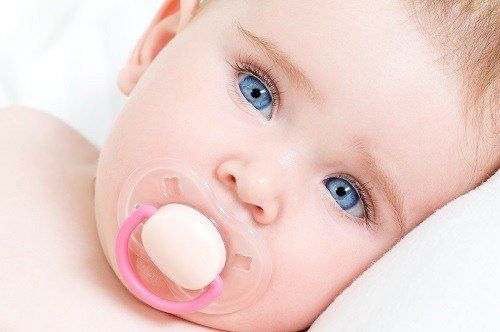Possible Complications with Children’s Pacifiers
For the exhausted parents of new infants, pacifiers are often the miracle they need whenever their child needs something for comfort. However, there are others who say that these same parents should be more concerned when it comes to their infant’s pacifier habits. Either way, the decision parents make regarding pacifiers must be an informed decision, hence why it’s crucial for parents to know the good and bad of pacifiers and how they can affect children based on their individual temperament and age. If you would like to know more about possible problems with pacifiers, check out our simple guide below.
How Pacifiers May Help
Pacifiers offer some definite benefits for both babies and parents alike. According to the American Academy of Pediatrics, parents should provide pacifiers for children who are older than a month of age for when they sleep, as studies have found pacifier use could help reduce a child’s risk for sudden infant death syndrome (SIDS). Pacifiers are also useful for quieting fussy babies, calming tired ones, and giving mom and dad the break they probably need at that moment.
Possible Problems
While pacifiers have clear benefits for parents and infants, there are a few things you should keep in mind before you start introducing pacifiers to your baby, some of which include the following:
- Eventually, parents need to help their child break their habit of sucking on pacifiers. Studies indicate that pacifier use will not negatively affect a child's oral health until after their first birthday has passed, though there are some sources saying adverse effects will not appear until after two years of age. However, this doesn't mean the child will want to willingly give up their pacifier when the time comes to wean them off.
- Also, introducing pacifiers too early may cause breastfeeding to become difficult. Successful breastfeeding calls for babies learning to properly latch to their mother’s nipple. Giving babies pacifiers before they have hit three or four weeks could lead to nipple confusion or even affect the mother’s milk supply.
For parents who have concerns or questions about introducing pacifiers or their child's current pacifier habits, you should speak with your pediatrician in order to see what they recommend for your specific pacifier situation. There may be possible complications with pacifiers, but parents should not swear off them entirely, because whatever comfort children find from pacifiers, they can easily find from their own thumbs, which is a significantly harder habit to break in young children.
If you are worried about the high costs of dental care for your family, consider signing up for our New Hampshire family supplemental dental plan. In addition to families, we offer coverage for both individuals and businesses. For more information or to sign up for one of our plans, click here.











